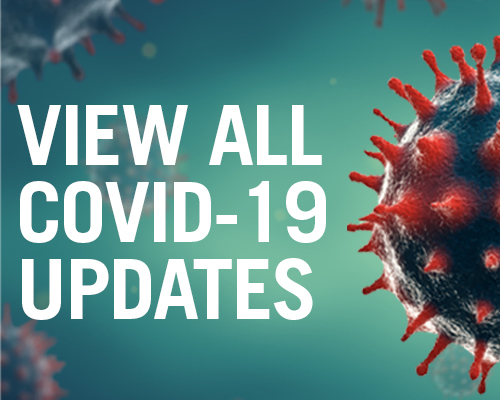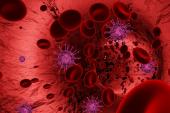Statins in COVID-19: More Signs of Potential Benefit
In a large observational study, people already on statins before being admitted with COVID-19 had lower in-hospital mortality.

Statins may lessen the impact COVID-19, yet another retrospective, observational study hints.
Early during the pandemic in New York City, patients who were already taking statins when they were admitted for COVID-19 were less likely to die in the hospital within the first 30 days than those who were not taking the medications (14.8% vs 26.5%; OR 0.47; 95% CI 0.36-0.62), researchers report.
The proportion of patients who required invasive mechanical ventilation in the first 30 days was numerically lower in the statin group, although the difference fell shy of statistical significance (18.6% vs 21.9%; OR 0.76; 95% CI 0.58-1.00), according to findings published online February 26, 2021, in Nature Communications.

That’s consistent with several prior analyses that have come out over the past year. A meta-analysis of four studies published in August 2020, for instance, showed that statin use was associated with a 30% lower risk of fatal or severe disease.
Existing studies, including the current one, are all retrospective in nature. Even though it’s good to see similar results across them, said Aakriti Gupta, MD (NewYork-Presbyterian/Columbia University Irving Medical Center, New York, NY), one of the lead authors of this latest analysis, validation of statins’ potential protective effects in COVID-19 needs to come from randomized trials, several of which are ongoing.
“We have enough evidence now to establish that statins may be a promising treatment strategy for patients with COVID because of their antithrombotic, anti-inflammatory and immunomodulatory effects, and as such we really do need to pay close attention to randomized controlled trial evidence,” Gupta told TCTMD.
In the meantime, patients who are already taking statins for an approved indication should continue treatment if they get COVID-19, she said. And for people who have an indication for statins but have not yet started them, there should be a low threshold for prescription if they come down with COVID-19.
Gupta acknowledged the limitations of the existing studies, which prevent taking the message further than that. But, she said, “we want to be cautiously optimistic about the benefit of statins in COVID, and it would be a great alternative to have.”
Lori Daniels, MD (UC San Diego Health, La Jolla, CA), who led a similar study yielding comparable results last year, commented: “To basically see the same result is quite reassuring that at the very least statins are not harmful in COVID, and it’s looking more and more likely that they’re probably protective.”
Several Potential Mechanisms of Benefit
After SARS-CoV-2 started spreading around the world, physicians noticed that the infection often resulted in a hyperinflammatory state accompanied by myocardial injury and thrombotic complications. That got researchers thinking about statins as a potential therapy.
In the current study, Gupta et al examined data on 2,626 patients admitted with COVID-19 to hospitals within the NewYork-Presbyterian system between February 1 and May 12, 2020; 36.2% were already taking statins at the time of admission. Statin users tended to be older and to have more comorbidities.
Statin use was associated with a lower risk of in-hospital mortality within 30 days, both in a propensity-matched analysis of 648 pairs of statin users and nonusers and in a multivariate-adjusted analysis of the entire cohort (OR 0.49; 95% CI 0.38-0.63). There also were nonsignificant trends toward lower rates of invasive mechanical ventilation among statin users.
The investigators discuss several potential mechanisms through which statins could be improving outcomes among patients with COVID-19: stabilization and restoration of endothelial function; reduction of inflammation; plaque stabilization; antithrombotic effects; and effects on cell membranes that impact the ability of SARS-CoV-2 to gain entry and replicate.
Daniels said that while awaiting randomized trials testing the benefit of statins in patients with COVID-19 of varying severity, observational studies can provide clues about how the medications may be helping. If statins are associated with better outcomes in all patients regardless of underlying conditions, that may indicate mechanisms related to anti-inflammatory effects or a direct impact on the virus. On the other hand, if the drugs are primarily helping patients with serious underlying CVD, that may indicate mechanisms related to stabilization of underlying disease.
Daniels’ group has now research going through peer review that is based on the American Heart Association’s COVID-19 CVD Registry. She said it suggests that statins may be particularly protective in patients with more-severe underlying cardiovascular conditions, like prior MI or stroke.
Statins as a COVID-19 Treatment?
It’s too early to say that statins should be used to treat patients with COVID-19, both Gupta and Daniels agreed. But there are important public health messages about statins that stem from this line of research, which they said at a minimum shows that the drugs are safe in the setting of COVID-19.
“Knowing that they’re safe in COVID and that they may very well be protective, especially if you have been given a prescription for a statin for some other reason but haven’t started it yet, that can be a huge impetus to get people to actually fill that prescription and take it,” Daniels said.
Several trials are testing whether statins will be useful as a treatment for COVID-19. Gupta and several of her co-authors are involved in INSPIRATION, a 2x2 factorial trial randomizing patients who are critically ill with COVID-19 both to intermediate- versus standard-dose prophylactic anticoagulation and to atorvastatin 20 mg daily versus placebo.
If this and other trials of statin therapy are positive, “I think it would be a great therapeutic alternative to have in our toolbox to treat COVID, because it’s pretty low cost and it’s readily available and a lot of people already use it,” Gupta said.
Note: Several co-authors are faculty members of the Cardiovascular Research Foundation, the publisher of TCTMD.
Todd Neale is the Associate News Editor for TCTMD and a Senior Medical Journalist. He got his start in journalism at …
Read Full BioSources
Gupta A, Madhavan MV, Poterucha TJ, et al. Association between antecedent statin use and decreased mortality in hospitalized patients with COVID-19. Nat Commun. 2021;Epub ahead of print.
Disclosures
- Gupta reports receiving payment from the Arnold & Porter Law Firm for work related to the Sanofi clopidogrel litigation and from the Ben C. Martin Law Firm for work related to an inferior vena cava filter litigation; receiving consulting fees from Edward Lifesciences; and holding equity in the healthcare telecardiology start-up Heartbeat Health.





Comments